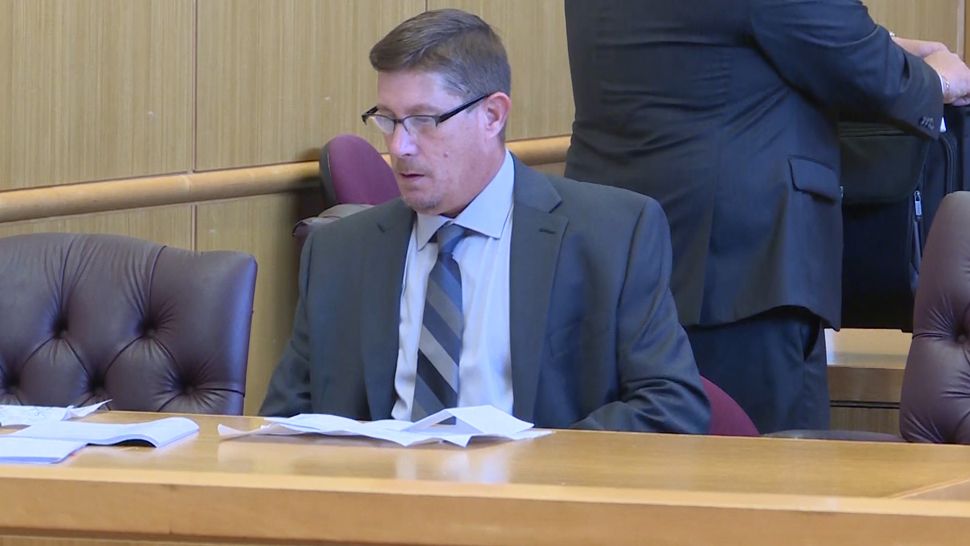PINELLAS COUNTY, Fla. — A jury has been seated in the trial for Michael Drejka, who is accused of shooting and killing Markeis McGlockton last year amid a dispute over a parking spot.
- Jury selection for Micheal Drejka trial started Monday
- Drejka accused of killing Markeis McGlockton in 2018
- Shooting stemmed from argument over parking spot
- MORE stories on controversial case
- LIVE UPDATES below ▼
In two days of jury selection, attorneys went through more than 100 potential jurors, with a number of them saying they've heard about the case, and some saying they have already formed an opinion.
Possible jurors also answered a number of questions ranging from guns to race to where they get their news.
The selected jury consists of six people: Five men and one woman. Three alternates were also chosen.
The fatal shooting stemmed from an argument over a disabled-driver parking space and fueled a national debate over Florida's "stand your ground" law.
"It's amazing how people have really strong feelings about the stand-your-ground law, either for or against it. And no one knows what it really is. As a matter of fact, the stand-your-ground law doesn't exist. There's justifiable use of deadly force and justifiable use of non-deadly force," Judge Joseph Bulone said.
Drejka tried to use the "stand your ground" defense after he shot and killed McGlockton outside a Circle A Food Store in Clearwater on July 19, 2018.
McGlockton can be seen on surveillance video shoving Drejka to the ground after Drejka confronted McGlockton's girlfriend, Britany Jacobs, for parking in a disabled-driver spot outside the store.
The case could be very emotional for jurors. Feelings of race, gun control, and gun rights could all be called into question, and jurors will have to determine whether Drejka's actions were justified.
On Monday, the judge told the potential jurors that it's OK if they have heard about the case or have already seen the surveillance video, though it's not OK if they have already made up their minds on whether Drejka is guilty.
"The important thing here is that you keep an open mind and you listen to everything. You consider all the evidence, you follow the law, and you apply the law to the facts and determine if the state proved its accusations beyond a reasonable doubt, or not," Bulone said.
The jurors are also banned from sending or receiving texts or emails about the case, can't research it online, or post anything about it on social media.
The trial is expected to last about two weeks.
Drejka faces up to 30 years in prison if he's convicted.
